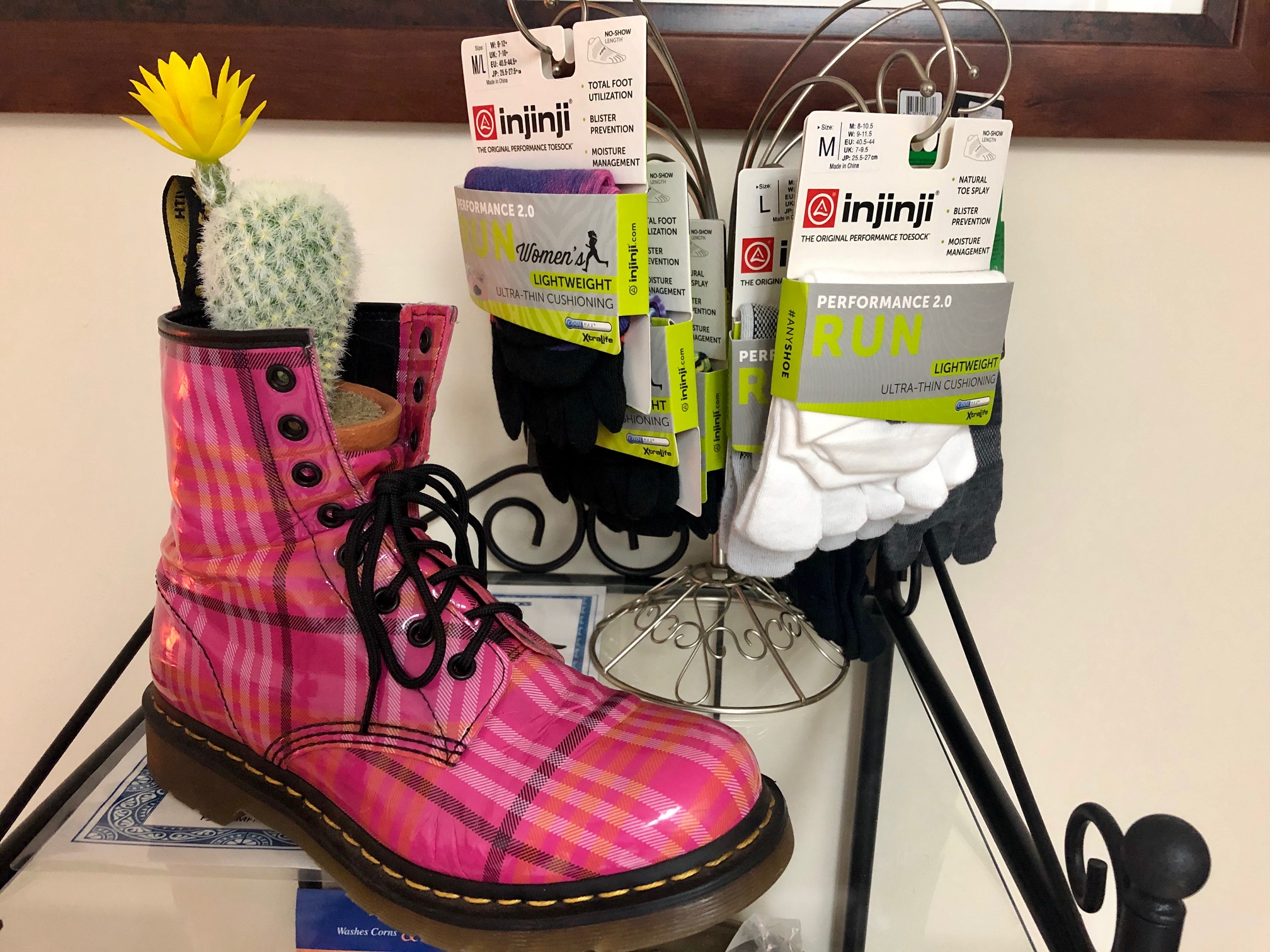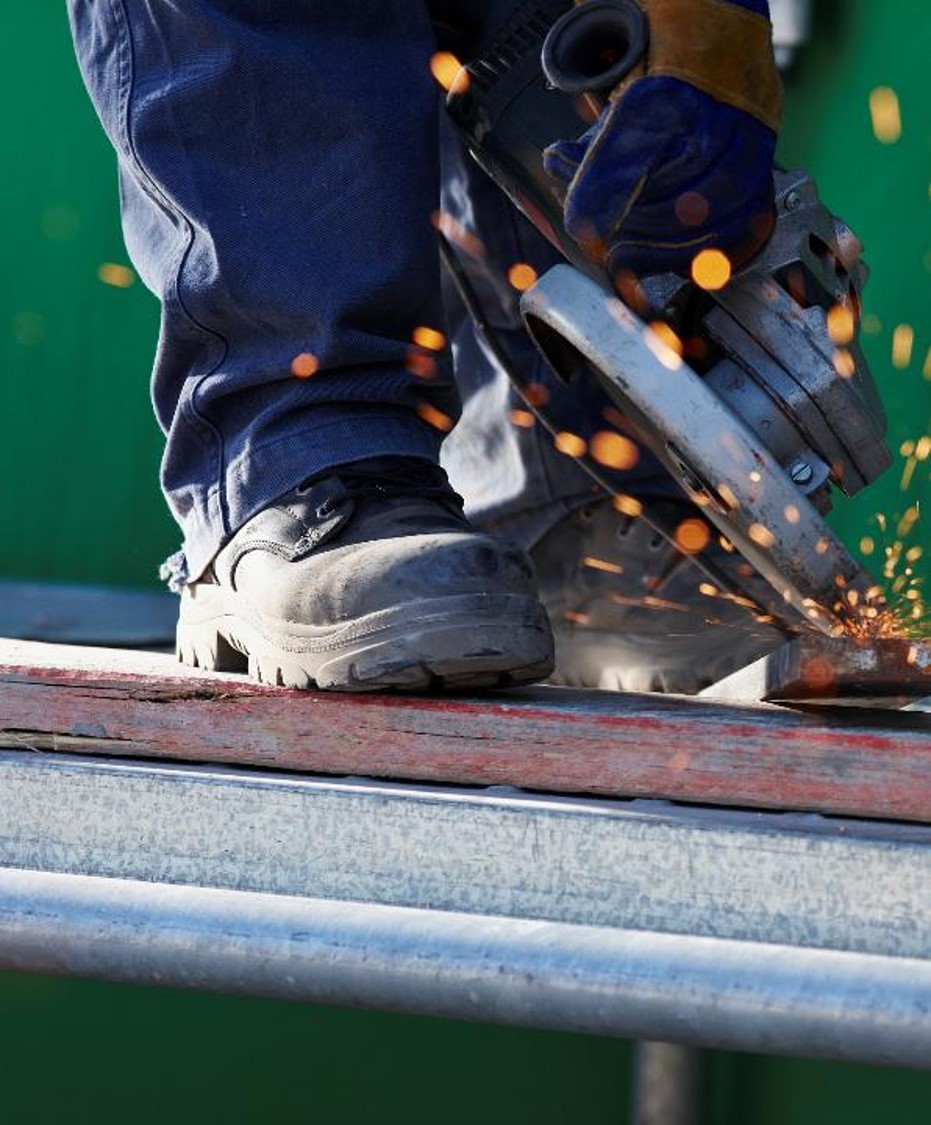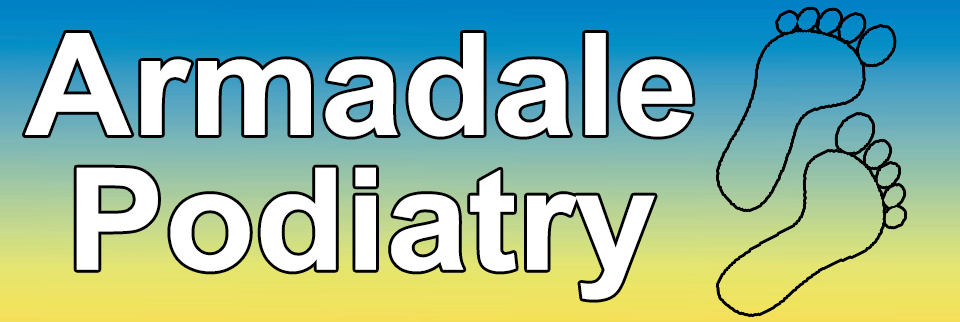Working Feet
Depending on the type of work you do, your feet may be subjected to long periods of standing, lifting heavy loads, climbing up and down ladders or even jumping off equipment like trucks on a daily basis.

The Daily Grind
This may lead to foot problems such as calluses, corns, strains, fractures, plantar fasciitis, tinea and nail problems.
It is important to be aware of the impact of your job on your feet and be proactive about limiting any potential long term negative effects
Assess your workplace environment
Hazardous conditions, like oily and slippery floors, wet conditions or extreme heat or cold can put feet at risk of injury and can lead to foot problems such as fractures, chilblains or tinea.
In almost every workplace there is the risk of trips, slips and falls, or objects falling or rolling onto feet. Be aware of foot hazards and use foot-safe work practices and wear the necessary footwear to protect your feet.
Good foot-safe work practices to follow.
Stretch when you can:
Your muscles can become stiff and painful as you stand or walk all day. Stop every hour or so to stretch, relax, and lengthen your tightened muscles
Wear supportive and correctly fitted shoes:
Shoes that are properly fitted with comfortable inners, lower heels and good arch support are recommended to reduce discomfort and prevent foot injury.
Depending on your workplace, you may be required to wear steel-toe boots.
Make sure the toe cap doesn’t press onto the toenails as this may lead to ingrown nails and corns on the toes.
Replace your work shoes when they show significant signs of wear to prevent problems associated with lack of support and rubbing against the skin.
Prevention is always better than cure so check your feet daily:
Many foot problems can be prevented simply by washing and drying your feet properly and inspecting your feet for corns, calluses, rashes and cuts.
Don’t forget to keep your nails in good condition.
Looking after your feet will help prevent problems and make your working more comfortable.
Change your position regularly to avoid muscle fatigue:
Make sure to keep your muscles active. Keeping joints flexible by moving around is just as important as sitting down and having a rest at regular intervals.
Make sure you change positions often so that any one specific muscle group isn’t getting more strain than another.
When to seek Professional Advice from Armadale Podiatry?
A check up is recommended if:
- you notice uneven shoe/boot wear
- you notice skin rashes on your feet
- hard skin lumps or bumps on your feet
- your toenails become ingrown
- you notice any changes in feet or ankles
- you notice any tingling or pins and needles
- you have any other concerns about your feet


Contact us
For emergencies call 000 or visit your nearest hospital
